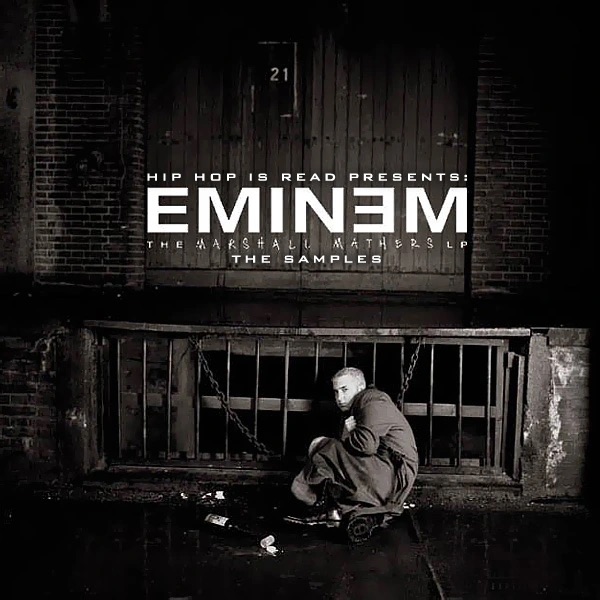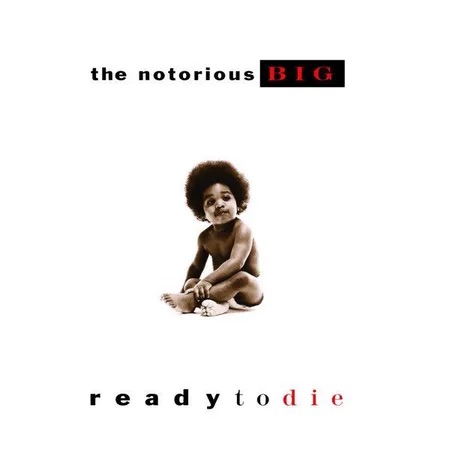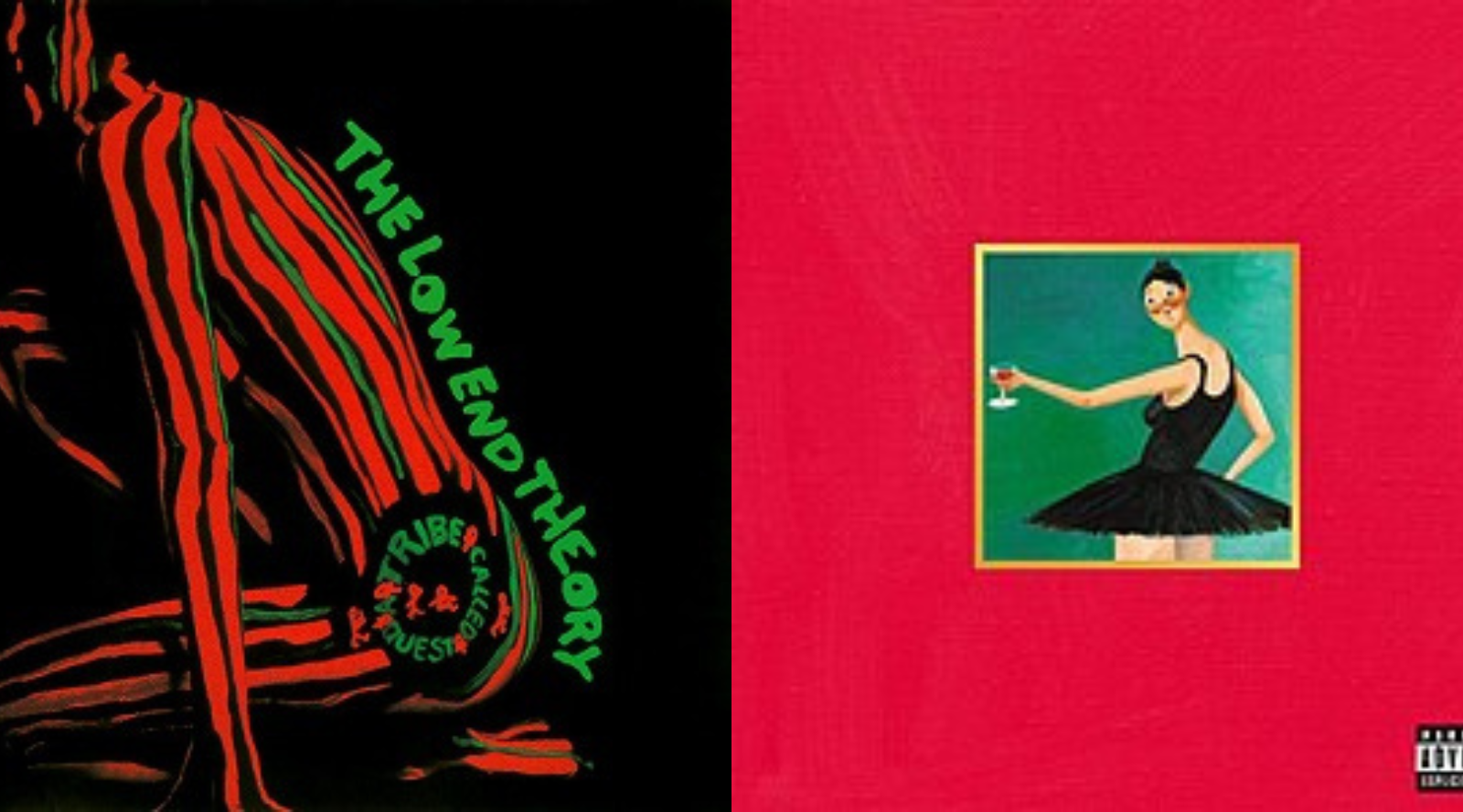The ever-evolving world of hip-hop, a dynamic genre with immeasurable influence on not only the music landscape, but culture, politics, and society at large, this year celebrates its 50th anniversary. From the gritty streets of Compton and the birth of the melodic West Coast G-Funk, to the lyrical brilliance emanating from Brooklyn, the genre and its purveyors have consistently pushed boundaries, breaking through pre-established norms.
Half a century into its existence, looking back on hip-hop’s wide-spanning journey can’t be done without remembering the artists and musical pioneers who refined the “mainstream” sound with monumental albums that not only define the essence of the industry, but have resonated deeply with a global audience. From the ‘70s to the 21st century, Dr. Dre’s “The Chronic,” Nicki Minaj’s “Pink Friday,” and Tupac’s “All Eyez On Me” stand as pillars of creativity, artistry, and expression for aspiring West Coast and East Coast emcees, and everyone in-between.
Paying homage to hip-hop’s storied history means exploring the immaculate narrative of Nas’s “Illmatic,” the innovation of Snoop Dogg’s “Doggystyle,” and understanding the cultural impact that surrounds the rolodex of timeless records. Through sonic masterpieces, hip-hop masters have etched an enduring legacy on the global stage, serving as a wellspring of inspiration for a new generation of artists, including Megan Thee Stallion and JID, and an unwavering source of fascination for fans worldwide.
Ahead, from Lil Kim’s provocative “Hardcore” to Kanye West’s “My Beautiful, Dark, Twisted Fantasy,” here are the top 21 hip hop albums of all time, ranked.
21. “Tha Carter III” by Lil Wayne (2008)
Lil Wayne’s Tha Carter III, selling a million copies in its debut week, made for a remarkable artistic progression for the Louisiana rapper with award-winning chart-toppers such as “Lollipop” and “A Milli.” This release underscores the loyalty of his fanbase, and, coupled with one-of-a-kind flows and vocal styles, is hailed as a 21st-century hip-hop masterpiece.
20. “Hardcore” by Lil’ Kim (1996)
Following her brief stint with Junior M.A.F.I.A., Lil’ Kim emerged as a provocative and influential fashion icon with an equally bonafide double-platinum debut. “Hardcore” both delighted and provoked unhinged feminine dallyings, which challenged gender norms by juxtaposing female empowerment with objectification. Still, the “Crush on You” singer’s gritty beats and unapologetic wordplay opened up many doors for female emcees within hip-hop.
19. “Pink Friday” by Nicki Minaj (2010)
Nicki Minaj’s transition from mixtapes and guest appearances to a solo artist in the mainstream music industry didn’t only promote female empowerment, but inspired a new generation of female rappers. From her eccentric pink fashions and chart-topping singles (“Super Bass,” “Your Love,” and “Right Thru Me”), cross-genre versatility promoted Minaj to a cultural phenomenon, making her one of the most respected emcees today.
18. “Southernplayalisticadillacmuzik” by OutKast (1994)
While their debut doesn’t hold a candle to the 2000’s “Stankonia,” it did lay a solid foundation for Outkast as pioneers of Southern hip-hop. Composed of Andre 3000 and Big Boi, their funk and soul production flare and southern slang seeped into the duo’s equally flamboyant fashion statements, influencing hip-hop fashion during the mid-’90s.
17. “Paul’s Boutique” by Beastie Boys (1989)
Beastie Boys’ second album marked a departure from their previous, straightforward rap style, forever redefining sampling in hip-hop with its extensive use of rock, funk, soul, and jazz tracks. Despite its mixed commercial success, “Shake Your Rump” and “Hey Ladies” pigeonhole the record as a cultural classic for creative production.
16. “Take Care” by Drake (2011)
After the Young Money member’s Grammy-winning album debuted at No. 1 on the Billboard 200 album chart, its melodic electronic production became a new standard in contemporary hip-hop. Dipped in a hip-hop and R&B fusion, Drake’s emotionally charged themes and introspective lyrics (“Headlines” and “The Motto”) played a crucial role in popularizing the “emo rap” subgenre.
15. “The Miseducation of Lauryn Hill” by Lauryn Hill (1998)
Lauryn Hill, formerly of the Grammy-winning group Fugees, emerged as a creative powerhouse in her solo debut, blending rap, soul, and reggae. Standout singles such as “Doo Wop (That Thing)” and “Can’t Take My Eyes Off of You” showcase her eclectic and empowering musicality. The Grammy-winning soloist never quite recreated the initial, tender magic, but left a legacy that artists such as Nicki Minaj and SZA continue to trailblaze.
14. “All Hail The Queen” by Queen Latifah (1989)
“All Hail the Queen” marked Queen Latifah as one of the pioneering female emcees in the male-dominated world of hip-hop before turning to the film industry. Singles such as “Ladies First” and “Wrath of My Madness” showcased socially conscious, positive, and unapologetically feminist messages that make Queen Latifah the perfect role model for young women and aspiring female artists.
13. “The Marshall Mathers LP” by Eminem (2000)

Eminem’s Grammy-winning debut album achieved massive commercial success with its dark, explicit storytelling. Despite controversy over then-offensive themes such as drug addiction and mental health, the album’s intricate rhyme schemes made it a hip-hop best-seller, sparking debates over artistic expression and censorship, and ultimately propelling similarly controversial artists into iconography.
12. “Good kid, m.A.A.d city ” by Kendrick Lamar (2012)
While his previous work garnered attention, Kendrick’s “good kid, m.A.A.d city” solidified the rapper as a commercially viable artist with a No. 2 debut on the Billboard 200 album chart. The album played a pivotal role in shaping the direction of contemporary Hip-Hop through its cohesive and personal narrative of Black youth, chronicling Lamar’s experiences growing up in Compton, California – entirely unfiltered.
11. “Doggystyle” by Snoop Dogg (1993)
Snoop Dogg’s breakout “Doggystyle” album soared to number one on the Billboard 200 and achieved over 800,000 sales in its first week, setting a then rap debut record. Repopularizing Dr. Dre’s West Coast G-funk and giving birth to hits such as “Gin and Juice” and “Who Am I? (What’s My Name?).” Despite the controversy surrounding explicit lyrics and recreational drug aesthetics, Snoop’s persona not only validated the ’90s “gangsta” image, but has maintained an unshakable charm to this day.
10. “The Low End Theory” by A Tribe Called Quest (1991)
While their debut effort may not be an instant callback, The Queens quartet’s sophomore effort, “The Low End Theory” remains timeless. Although song sampling has a sour aftertaste in today’s industry, Quest fostered new-wave originality through tracks such as “Scenario,” “Check The Rhime,” and “Excursions” while brilliantly intersecting jazz-infused soundscapes and Afro-centric rhymes.
9. “Supa Dupa Fly” by Missy Elliot (1997)
In the late ’90s, Missy Elliott, was among those torevitalize female rap. When “Supa Dupa Fly” was released, it faced sexist backlash around what some called “lazy” AAVE colloquialisms. Instead of gangster rap, Elliot delved into love troubles with “Sock It 2 Me,” “Beep Me 911,” and “Best Friends,” bringing mainstream hip-hop back to its roots, and making the Virgina native’s debut a memorable milestone in the genre.
8. “Illmatic” by Nas (1994)
Released when the rapper was just 20 years old, Nas’s “Illmatic” showcased qualities of a lyricist who, at the time, was wise beyond his years. Fueled by his childhood in the Queensbridge housing projects in New York City, Nas’s vivid and unfiltered glance into urban life as a young black man boosted his street credibility and place as a prominent figure in Hip-Hop.
7. “The Infamous” by Mobb Deep (1995)
Mariah Carey’s sampling of Mobb Deep’s 1995 classic “Shook Ones Pt. II” for her 1997 ballad “The Roof” signifies the duo’s influential impact. “The Infamous” is Havoc and Prodigy at their prime, crafting a unique blend of nihilistic storytelling and standard rhyming with a boom-rap style. Tracks like “Survival of the Fittest,” “Trife Life,” and “Cradle to the Grave” elevated collaborators such as Nas and Ghostface Killah while laying the foundation for Eminem’s early 2000s success.
6. “Enter The Wu-Tang (36 Chambers)” by Wu-Tang Clan (1993)
Originating with the hit “Protect Ya Neck,” the Staten Island group Wu-Tang Clan was pivotal in re-shaping ’90s rap. Comprising RZA, GZA, Ol’ Dirty Bastard, and Ghostface Killah, among others, this nine-member crew left an indelible mark with their distinctive debut. Their fusion of jazz and rap, exemplified in “C.R.E.A.M. (Cash Rules Everything Around Me),” transcended underground boundaries and defined an era.
5. “Ready to Die” by The Notorious B.I.G. (1994)

Before Jay-Z and Nas, there was The Notorious B.I.G., a Brooklyn native who soared through the charts. The record “Ready to Die” set a standard for raw storytelling, devoid of romanticization, and captured the gritty rags-to-riches journey. Though B.I.G.’s career stint was brief, due to an untimely death, his enduring influence lives on as young artists continue to sample his multi-platinum debut tracks “Juicy” and “Big Poppa.”
4. “All Eyez on Me” by Tupac (1996)
Debuting at No. 1 on the Billboard 200 chart and reaching 5x platinum in just two months, Tupac’s final record, “All Eyez on Me,” popularized gangsta rap and G-funk with socio-political depth — particularly with songs such as “Dear Mama” and “Life Goes On” — forever cementing the late rapper’s impact in hip-hop.
3. “My Beautiful Dark Twisted” Fantasy by Kanye West (2010)
Kanye West, who once claimed to be the closest human to Michael Jackson, rose to fame by producing music for hip-hop legends Jay-Z and Foxy Brown. His fifth album, “My Beautiful Dark Twisted Fantasy”, marked a transformative moment in the multi-hyphenate’s career, departing from his usual production style to embrace polarizing and subversive sounds. The result was a collective of hits including “POWER,” “All Of The Lights,” “Runaway,” and Nicki Minaj’s breakthrough feature on “Monster.”
2. “The Blueprint” by Jay-Z (2001)
Jay-Z’s magnum-opus record, “The Blueprint” rebuilt and reshaped the rap game. Even with worthwhile commercial success, the album ushered in new chart success, receiving its double-platinum badge in less than a month with hits “Song Cry,” “Izzo (H.O.V.A.),” and the infamous Nass diss track “Takeover.” The landmark release introduced Kanye West to mainstream success while beginning a trilogy to honor one of the genre’s all-time greats.
1. “The Chronic” by Dr. Dre (1992)
A body of work that all but revolutionized hip-hop by pioneering G-Funk, Dr. Dre’s “The Chronic” became a blueprint for West Coast rap. The landmark album, featuring the Grammy-winning track “Let Me Ride,” not only addressed gang violence and street life realistically, but became a commercial juggernaut with millions of copies sold, catapulting Dr. Dre into solo stardom separate from N.W.A.


Leave a Reply